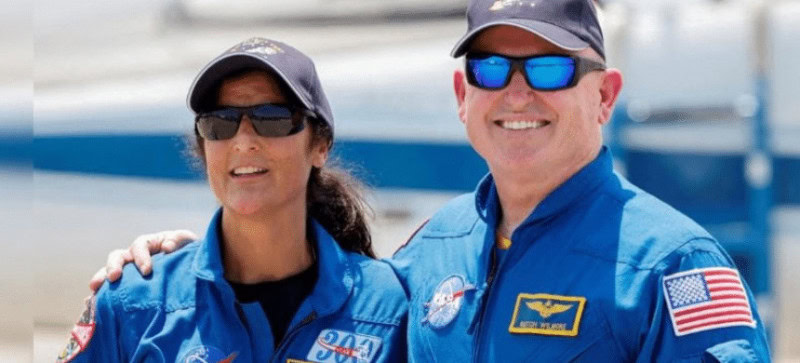NASA has addressed growing concerns about the safety of astronauts Sunita Williams and Barry Wilmore, who launched to the International Space Station (ISS) in June 2024 aboard Boeing’s Starliner capsule.
The agency has confirmed that Boeing’s Starliner will return to Earth without the astronauts onboard.
READ MORE —Musk sees fourth flight of SpaceX’s Starship in 3-5 weeks
Food and Oxygen Supply: The Current Status
Despite the mission’s extension, NASA has reassured the public that the ISS is well-stocked with sufficient food and oxygen to support the crew, eliminating any immediate risk of shortages. NASA is closely monitoring the situation to ensure the astronauts’ safety.
In a key decision, NASA announced that the Starliner capsule, which has encountered technical issues, will return to Earth uncrewed. This move prioritizes astronaut safety while allowing NASA to gather crucial data during the capsule’s return. NASA Administrator Bill Nelson emphasized the inherent risks of spaceflight, noting that keeping the astronauts on the ISS while the Starliner returns autonomously aligns with NASA’s commitment to safety.
Williams and Wilmore will remain on the ISS as part of Expedition 71/72 until February 2025, where they will continue supporting research, maintenance, and Starliner system testing. They are scheduled to return to Earth aboard SpaceX’s Dragon spacecraft along with other crew members from the SpaceX Crew-9 mission.
The Starliner’s uncrewed return is planned for early September 2024, featuring a controlled autonomous re-entry and landing. NASA’s decision is designed to minimize risks while collecting valuable data for future space missions.
Although typical ISS missions last about six months, astronauts have successfully completed longer stays, providing essential data on long-duration spaceflight.
Do the astronauts have the necessary supplies?
Yes, the ISS is fully stocked with food, water, and other essentials, and additional resupply missions are planned throughout 2024.







